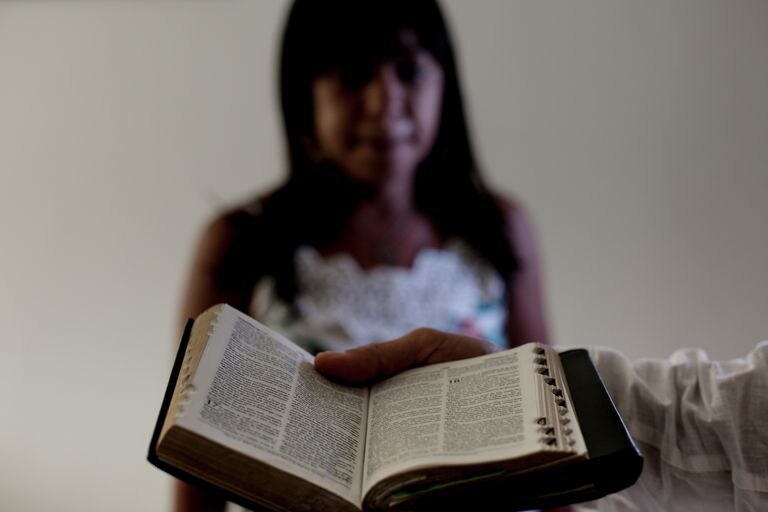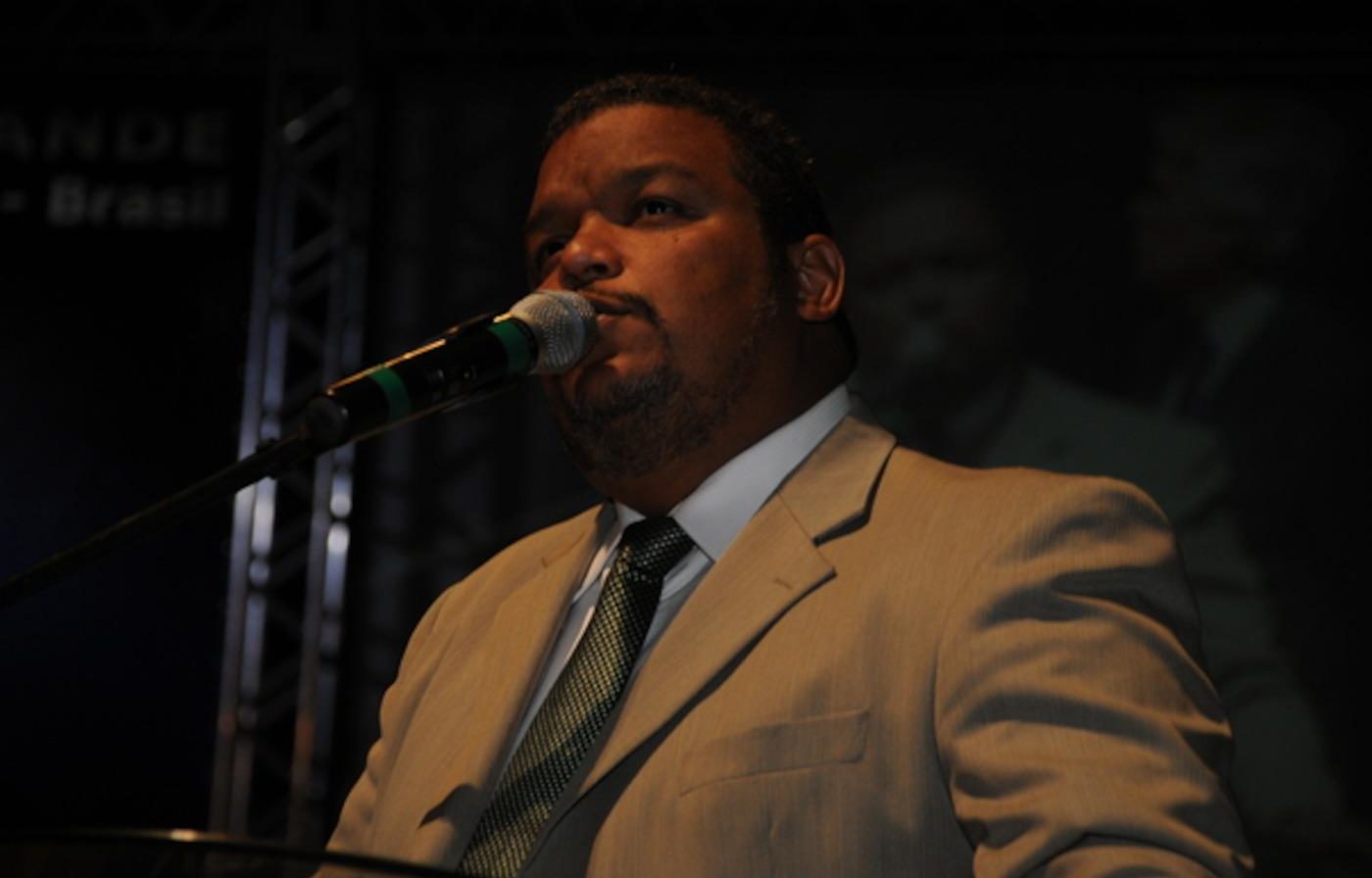RIO DE JANEIRO, BRAZIL – “Don’t worry, it’s all part of the technique.” This is how the evangelical pastor Francisco Dias da Silva Filho, former leader of the Baptist Church in the Campo Grande district in Recife, harassed, raped and violated women inside the church’s pastoral office, according to 11 victims who have denounced him.

With a master’s degree in psychology from the Catholic University of Pernambuco (UNICAP), Silva Filho would attend the women saying that he intended to counsel them. However, what occurred was not limited to counseling.
For years, Silva Filho abused women, according to the Civil Police, which began investigating the case after the victims decided to break their silence and pressed charges against the evangelical leader. Silva Filho was charged by the Civil Police with sexual harassment, rape, rape by means of fraud, racial insult, defamation and violation of professional secrecy, but he died on March 7th in the capital of Pernambuco, after being hospitalized with Covid-19.
Read: Evangelical Woman Arrested for Homophobia After Attacking Gay Man in Bus Terminal
The pastor’s death closed the case in the legal sphere, but the detective in charge of the case, Bruna Falcão, emphasizes the significance of the echo of these voices. “Francisco was not the only one. There is a practice in Christian and evangelical circles of pouring oil on troubled waters, not only in issues related to sexual violence, but also to domestic violence,” she says. “This movement of women seeking the police to report abuse and violence in the church must never stop, so that other victims will recognize themselves in these stories and also seek help.” The indictment against Silva Filho came to light after these women identified themselves in each other’s accounts.
“I confided in him that I had an eating disorder and he proposed that we should talk whenever we could, because he was a psychologist,” says Luciana – the names have been changed to preserve the women’s identities. But little by little the meetings became unbearable for her. “He made me send photos of parts of my body, because he said I had a self-image disorder. Then he asked me to send a video touching myself. It was all very gradual,” she says. “One day he asked me to go into his living room and stand in only my panties and bra so that I could see myself, and then he touched me,” she says. “He told me ‘trespass with me here, I am your pastor and I am your psychologist.'”
Luciana even met the pastor in his office a few times, in search of a cure for her eating disorder, which at the time not even her family knew about. Until the day she was raped by Silva Filho. “He told me ‘if you do this with me, you will get well’ and started kissing me,” she says. In the end, the victim says that the pastor even made her promise that she would “never have sex with anyone but my husband.”
She only realized that she had been raped when, years later, she sought help from a psychologist. “She told me that what I had experienced was not even remotely therapy. It was abuse,” she says. “My world came crashing down. I considered him as a father to me. He performed my wedding, introduced my two daughters [as baptism is called in the evangelical church], went to my daughter’s reveal party…. What was I going to do with that information? How was I going to tell my husband?”
Luciana’s story was the thread that led other women to understand that they had also been victims of the pastor. After she managed to tell her husband what had happened, the family left all the church groups. Katia, another victim, says that it was at that point that she realized that she had also been abused. “When Luciana’s husband passed the message to the group saying that they were leaving the church groups, and my husband shared it with me, it really hit home,” she says.
Katia’s therapy session was held with the promise of healing her from the abuse she suffered in childhood by her grandfather. With the same approach, she says Silva Filho even asked her to hold his penis as part of therapy. “He showed his penis and said ‘I am your psychologist. Mark 45 minutes on your watch as if it were a therapy session,'” she says. “I left in a daze, apologizing. After that he started treating me like I was his best friend. And then you end up not knowing what really happened.”
Read: Analysis – How Evangelical Churches in Brazil Are Using the Coronavirus Crisis
Detective Bruna Falcão says that the pastor’s modus operandi was key to indict him. “We didn’t have any material expert evidence, because they took a long time to recognize themselves as victims. But it was clear that there was an identity in his behavior rather than a singularity in their statements,” she says. “Francisco took advantage of their trust in him as a pastor. Many blamed themselves for a long time, believing that he would not be capable of doing anything wrong,” says the delegate.
“They only began to realize what had happened when they identified themselves in each other’s accounts and realized that the techniques were very similar.” The denunciations, according to the delegate, occurred between late 2019 and early this year. In all, 11 women testified and reported cases that occurred between 1996 and 2019. Some of those cases were already time-barred.

“I lost my baby”
Prosecutor Henriqueta de Belli of the Pernambuco Prosecutor’s Office says that Pastor Francisco’s victims were not limited to women who attended his church. According to her, the pastor would welcome faithful from other institutions, referred by their leaderships, to be “treated” by him. “There was a network,” she says.
“Every Baptist leader of the neighborhood churches in the outskirts of Recife would turn to this pastor to solve the needs of depressed women or women with personal problems,” she says. “The church structures today in Recife took advantage of his figure as being a mediator of conflicts. I understood this from the interviews I did at the Olinda Prosecutor’s Office, although I was not the prosecutor of the case.”
Juliana was among the women referred to Pastor Francisco. Three years ago, she became pregnant by a man who was part of her church’s ministry, located in Olinda. Knowing of the pregnancy, the leader of the institution she attended referred her to Francisco. “My pastor came to my home and said that I was crazy to go through with the pregnancy and that I needed help,” she says. “At the same time he called Pastor Francisco and set up a time for me to go there.”
Juliana recounts with great distress, but with rich details, the day she went to the pastoral office, in September 2017, and was raped followed by violent blows to her belly. “With his genital out of his pants, he would say ‘don’t worry, it’s all part of the technique.’ I cried a lot, but although I was nervous, crying, he made me very comfortable, because at all times he said he was there to help me and heal me.”
After being raped and molested, J. left the pastoral office with a request for an ultrasound and a referral to a psychiatrist friend of the pastor. “The next day I woke up in great pain and bleeding,” she says. “When I went to do the ultrasound, I had already lost my baby.”
In common, in addition to the report of the technique used, these women also find it difficult to deal with what happened. “Until early this year, I still thought he was a man of God and had performed a healing process on me,” says Juliana. She only understood what had happened when a mutual friend told her what Luciana had been through. “It was only there, listening to Luciana’s story, that I understood what had happened to me,” says Juliana. Her deposition was taken last week. “Until now I thought I had lost my baby by God’s plan, because it was God’s will,” she says.
The Vozes Marias Collective, comprised of evangelical and feminist women for gender equality, denounces that church institutionality is perpetuating the violence committed against women and protecting the perpetrators. “There is a way of practicing violence that, even when it surfaces, women are labeled as adulteresses, and they say they were seduced by them,” says Bárbara Aguiar, a collective organizer and mobilizer who proposes to take gender discussions into churches.
Read: Peruvian Evangelicals Inject Thousands with Animal Vaccine Unproved against Covid-19
Human Rights Counselor Sylvia Siqueira helped the group to break their silence and give a statement at the police station. She says that even after the pastor’s death, these women will continue to ask for justice, through psychological support and also by holding the church accountable.
“I am sorry that Francisco Dias has passed away, because the crimes he committed are alive in the bodies and minds of women who are writhing in pain, an ache in their souls, as they remember what they experienced,” she says. “That is why we will continue to demand justice, and that goes beyond judicial conviction.”
The Baptist Church in Campo Grande was sought out and said, through a statement, that Francisco Dias da Silva Filho left his position as president of the institution in December 2019. “The church has made itself available to the relevant authorities, for the purpose of cooperating with the ascertainment of the facts,” the note states. “Regarding the women who filed a complaint against the ex-pastor, the church has provided psychological and spiritual support.” All the victims interviewed by the report said they stopped attending church. Some are receiving psychological counseling paid for by the institution.
The report tried to contact Silva Filho’s family, through a niece, who did not want to comment on the case.
Source: El Pais

